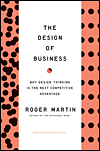Just about a year ago, the emirate of Abu Dhabi unveiled the "Plan Abu Dhabi 2030." This is essentially, the vision and outline of their major urban development initiatives for the next 22 years. A few weeks ago, they released a film of how this future desert city would take shape.
(The film was made by Squint/Opera).
It seems at first brush that Gulf state of Abu Dhabi is looking to its audacious neighbor Dubai and trying to learn from some of their mistakes. While Abu Dhabi, even more flush with funds and oil, is toying with some very lavish (ie. Emirates Hotel, Saadiyat Cultural Island) and quirky (ie. Ferrari Theme Park) developments, it does seem that their primary focus is to build a more livable global Arab city. Their aim is to brand themselves as the 'cultural and stylish Middle East alternative' for the 3 million residents and approximately 8 million tourists they anticipate by 2030.
To help them develop this vision, Abu Dhabi courted for a few years, Vancouver's senior planner, Larry Beasley; finally getting him to move to Abu Dhabi, days before his retirement. Under the guidance of Beasley and an international design team, 'Plan Abu Dhabi 2030' rejigged some of the original plans for the city. "There were very worrisome proposals for new development," Beasley has said. "Proposals were out of scale with the nature of the city... had nothing to do with culture... really were not about what the essence of the city is about." Instead of creating a city of attractions for the extremely wealthy like Dubai, Beasley is focused on creating a city that is about place for all people to enjoy regardless of status.
In addition to relocating and rebuilding the port, expanding residential units and increasing tourism and medical facilities, Beasley is designing a very walkable city. Unlike Dubai where you walk at your own peril along side speeding cars, Beasley convinced Sheikh Khalifa bin Zayed Al Nayan to cancel their 18 lane highway (reminiscent of Dubai's 12 lane Sheikh Zayed Road), that was about to start construction through the historic district of Abu Dhabi. Instead he proposed tunnels, walkways and expanded boulevards. To ease traffic congestion, a whole host of public transportations options are now in development. They include light rail, subways and buses.
A variety of public green spaces will also be a critical element to the new developments. According to press releases, the urban development will also reflect a greater environmental consciousness and sensitivity.
A central business district will be constructed an empty island adjacent to the historic core.
Unlike Dubai, which has exploded in all directions and is suffering from urban sprawl much like Los Angeles, the emirate of Abu Dhabi will constrain its horizontal growth with a sand belt.
However, most distinctly different from Dubai's many enormous urban projects that have seemingly sprouted over night haphazardly, unconnected and isolated - Abu Dhabi is hoping that this comprehensive city plan will carefully guide its urban evolution over time. They are also using this plan to help develop a regulatory and institutional framework which is currently lacking in both Dubai and Abu Dhabi given the youth of their emirates.
It is anticipated that these developments will cost the emirate $400 billion. 40% will be funded by the government and remaining financing will come from local and foreign investors.
We will have to wait and see how successful this plan is over the next two decades. Much of the changes and development will not only require financial investments and construction, but also require a shift in Emiritis' mind-set from driving to walking, especially during the summer months of unbearable heat. Building a successful contemporary Arab city that goes beyond the usual Arabian kitsch will require serious and time consuming study and deep understanding of local society, culture and mores. It will also require the involvement and support of the local Arab population, not just foreign consultants and architects. In its haste, neighboring Dubai has failed to succeed in this area. It will be interesting to see how Abu Dhabi Plan 2030 unfolds.
* The quotes from Larry Beasley cited above were taken from the Financial Post
(www.financial post.com)





























No comments:
Post a Comment